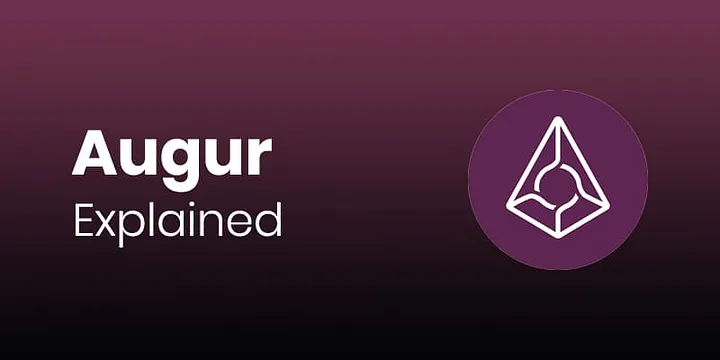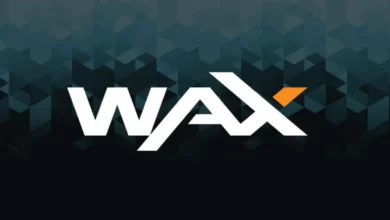Augur and its Decentralized Prediction Market

In recent years, the world of decentralized finance has emerged as a promising alternative to traditional financial systems. Decentralized prediction markets, in particular, have gained popularity due to their ability to provide a decentralized platform for users to make predictions on the outcome of future events. Augur, a decentralized prediction market platform, is a prime example of this growing trend. In this article, we will explore what Augur is, how it works, and its potential benefits and drawbacks.
What is Augur?
Augur is a decentralized prediction market platform built on top of the Ethereum blockchain. It was launched in 2018 by Joey Krug and Jack Peterson, and it allows users to create and trade prediction markets on the outcome of future events. These markets can range from sports events and political elections to the weather and cryptocurrency prices.
Augur is built on a decentralized network of computers, which means that it is not controlled by any single entity or government. Instead, it operates on a peer-to-peer basis, with users interacting directly with each other without the need for intermediaries.
How does Augur work?
Augur works by allowing users to create markets for events and other users to buy and sell shares in those markets. These shares represent the probability of a particular outcome occurring, with the share price increasing or decreasing based on the demand for that outcome.
For example, if a user creates a market for the outcome of a football game between two teams, other users can buy shares representing their belief in the outcome of the game. If more users buy shares for one team, the share price for that team will increase, reflecting the increased probability of that team winning the game. Conversely, if more users sell shares for that team, the share price will decrease.
Once the outcome of the event is known, the users who hold shares for the correct outcome will receive a payout based on the share price at the time of purchase. This payout is funded by the users who held shares for the incorrect outcome.
Benefits of Augur
One of the main benefits of Augur is its decentralization. By operating on a decentralized network, Augur eliminates the need for intermediaries such as bookmakers and brokers, which can reduce transaction fees and increase transparency.
Augur also allows users to create markets for almost anything, giving them the ability to profit from their own expertise and knowledge. This can be particularly useful for niche markets that may not be covered by traditional prediction markets.
Drawbacks of Augur
One of the main drawbacks of Augur is its complexity. The platform can be difficult to use for users who are not familiar with blockchain technology, which can limit its appeal to a wider audience.
Another drawback is the potential for market manipulation. Since users can create markets for anything, there is a risk that some users may try to manipulate the outcome of a market for their own benefit.
How to Use Augur
If you’re interested in using Augur to participate in decentralized prediction markets, here’s a step-by-step guide to get started:
- Install a web3-enabled browser such as MetaMask or use an Ethereum wallet like MyEtherWallet.
- Transfer some Ether to your wallet.
- Navigate to the Augur website and connect your wallet.
- Browse the existing markets or create your own market.
- Buy or sell shares in the markets you’re interested in.
- Wait for the outcome of the event to be determined.
- Collect your payouts if you’ve won.
Augur Tokens
Augur has its own cryptocurrency called REP (Reputation). REP is used to incentivize users to report on the outcome of events and resolve disputes within the platform. Users who hold REP have a say in the governance of the platform and can vote on proposed changes.
Augur vs Traditional Prediction Markets
There are several differences between Augur and traditional prediction markets. Here are a few key points:
- Traditional prediction markets are typically centralized and rely on intermediaries such as bookmakers and brokers.
- Augur is decentralized, meaning that it operates on a peer-to-peer basis without intermediaries.
- Traditional prediction markets have higher fees due to the need for intermediaries.
- Augur has lower fees since there are no intermediaries.
- Traditional prediction markets have limited options for markets.
- Augur allows users to create markets for almost anything.
Use Cases for Augur
There are several potential use cases for Augur, including:
- Political predictions: Users can create markets for political events such as elections or referendums.
- Sports predictions: Users can create markets for sporting events such as football games or tennis matches.
- Financial predictions: Users can create markets for financial events such as stock prices or cryptocurrency prices.
- Weather predictions: Users can create markets for weather events such as temperature or rainfall.
The Future of Augur
Augur has the potential to disrupt the prediction market industry by providing a decentralized platform for users to make predictions on the outcome of future events. While the platform is still in its early stages, there are several developments in the works that could enhance its functionality and appeal. These include:
- Improvements to the user interface to make the platform more user-friendly.
- Integration with other blockchain platforms to expand the range of prediction markets available.
- The launch of version 2 of the platform, which is expected to include several new features and improvements.



